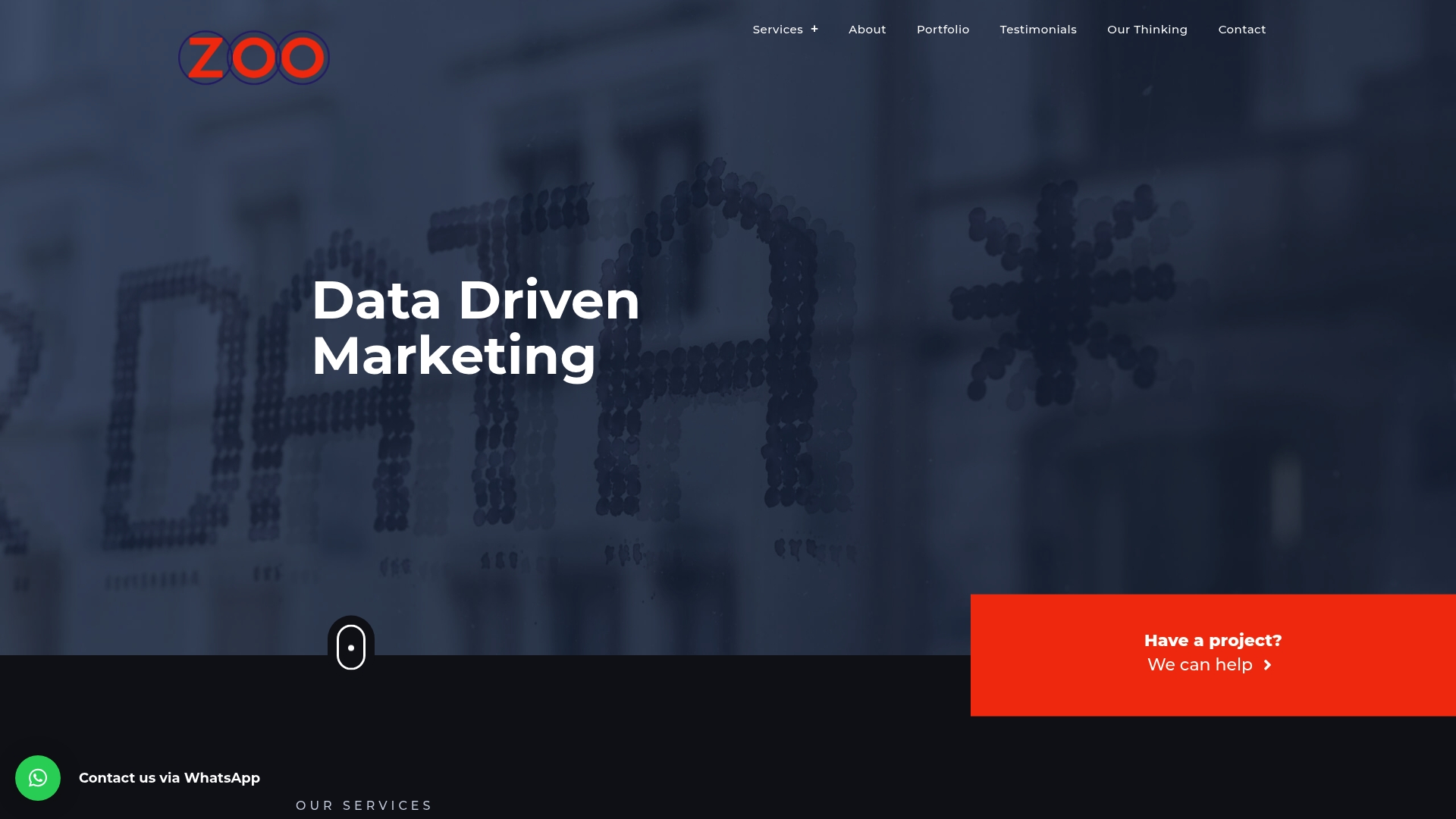Digital marketing budgets are ballooning year after year and smart allocation is now more critical than ever. Yet, most small businesses spread their budget too thin and end up seeing zero real gain. Shockingly, research shows that businesses optimising their budget using dynamic strategies see up to 30 percent better returns. The real secret is not spending more but knowing exactly where every rand delivers the highest impact.
Table of Contents
- Understanding Digital Marketing Budget Allocation Basics
- Key Factors That Influence Your Allocation Choices
- Step By Step Guide To Allocate Your Budget Efficiently
- Common Mistakes To Avoid For Small Businesses
Quick Summary
| Takeaway | Explanation |
|---|---|
| Smart Budget Distribution | Effective allocation involves understanding each channel’s capabilities and aligning them with performance metrics like conversion rates and customer acquisition costs. |
| Data-Driven Strategies | Utilizing advanced analytics and flexible reallocation mechanisms allows businesses to optimize their budget based on historical performance and customer journey insights. |
| Dynamic Monitoring | Continuous performance tracking and regular budget adjustments ensure that marketing investments remain effective and responsive to changing market conditions. |
| Avoid Common Pitfalls | Small businesses should steer clear of budget misallocation through strategic planning, consistent spending, and proper performance tracking to enhance marketing efficacy. |
| Focus on Core Strengths | Narrowing marketing efforts to the most effective channels and maintaining a disciplined resource management approach helps small businesses maximize their limited budgets. |
Understanding Digital Marketing Budget Allocation Basics
Digital marketing budget allocation represents a strategic approach to distributing financial resources across various online marketing channels to maximize return on investment. Unlike traditional marketing methods, digital platforms offer unprecedented precision and measurability in tracking marketing expenditures.

The Core Principles of Strategic Budget Distribution
Budget allocation is not about spending more money but investing smartly across channels that deliver meaningful results. A comprehensive approach requires understanding each digital marketing channel’s unique capabilities and potential impact. According to a 2022 study in the European Journal of Operational Research, effective budget optimization involves dynamic allocation strategies that adapt to changing market conditions and campaign performance.
Successful digital marketing budget allocation considers multiple critical factors:
- Performance Metrics: Tracking conversion rates, click-through rates, and customer acquisition costs for each channel
- Target Audience Alignment: Matching marketing channels with specific audience segments
- Channel Diversity: Spreading investments across platforms to mitigate risks
Data-Driven Budget Allocation Strategies
Modern digital marketing demands a scientific approach to budget planning. Research from a 2019 advanced analytics paper introduces a sophisticated framework for forecasting market responses through neural network modeling. This approach enables businesses to predict potential returns from different marketing investments with greater accuracy.
Key strategic considerations include:
- Analyzing historical performance data
- Understanding customer journey across multiple touchpoints
- Implementing flexible budget reallocation mechanisms
Businesses can leverage advanced techniques like the cross-channel advertising coordinated budget allocation framework (AdCob) to optimize spending. A 2023 study demonstrates how this approach can maximize overall conversions by intelligently distributing resources across digital platforms.
For small businesses looking to refine their digital marketing strategy, our comprehensive guide on online advertising provides practical insights into effective budget management. Understanding these foundational principles will help organizations make informed decisions that drive meaningful digital marketing outcomes.
Key Factors That Influence Your Allocation Choices

Digital marketing budget allocation is not a one-size-fits-all strategy. Multiple complex factors influence how businesses distribute their marketing resources, requiring a nuanced and strategic approach that goes beyond simple financial calculations.
Business Goals and Market Positioning
Your digital marketing budget allocation begins with a clear understanding of your specific business objectives. According to Harvard Business School Online, aligning marketing expenditures with strategic goals is crucial for effective resource deployment. This means different businesses will have dramatically different allocation strategies based on whether they seek brand awareness, lead generation, direct sales, or customer retention.
Key considerations in this phase include:
- Growth Stage: Startup businesses might allocate more budget to aggressive customer acquisition
- Market Competition: Highly competitive sectors require more substantial marketing investments
- Product Complexity: More sophisticated products often need more elaborate marketing approaches
To help visualise how business goals influence budget allocations, the following table summarises allocation tendencies at various business growth stages:
| Business Stage | Typical Allocation Approach | Key Focus |
|---|---|---|
| Startup | Higher spend on customer acquisition | Brand awareness, lead generation |
| Growth | Balanced between acquisition and retention | Expanding market share |
| Mature | More spend on retention/loyalty programs | Customer retention, lifetime value |
| Highly competitive | Larger overall spend focused on differentiation | Standing out in saturated markets |
| Complex product | Increased budget on education/content | Education, longer sales cycles |
Channel Performance and Audience Dynamics
Understanding your target audience’s preferences and behavior is fundamental to intelligent budget allocation. The Digital Marketing Institute emphasizes that different demographic groups interact with digital platforms uniquely, necessitating targeted investment strategies.
Effective channel selection involves:
- Analyzing historical performance data
- Tracking audience engagement metrics
- Identifying platforms with highest conversion potential
Technology and Resource Integration
Research from ECSI highlights the significance of integrating technology and tools in digital marketing budget planning. Modern marketing requires sophisticated analytics platforms, customer relationship management systems, and tracking technologies that themselves represent significant investments.
Technological considerations include:
- Marketing Automation Tools: Platforms that streamline campaign management
- Analytics Capabilities: Systems enabling precise performance tracking
- Integration Potential: Solutions that communicate across different marketing channels
Our guide on marketing analytics for small businesses provides deeper insights into selecting and implementing the right technological infrastructure for your digital marketing efforts. Understanding these intricate factors will help you develop a more strategic and responsive budget allocation approach.
Step by Step Guide to Allocate Your Budget Efficiently
Navigating digital marketing budget allocation requires a systematic and strategic approach. While every business has unique needs, there are proven methodologies to help optimize resource distribution and maximize marketing effectiveness.
Assessing Current Performance and Baseline Metrics
Before allocating funds, conduct a comprehensive audit of existing marketing channels and their performance. According to UvelerMarketing’s strategic approach for 2025, businesses should implement a structured evaluation process that examines key performance indicators across all digital platforms.
Key steps in this initial assessment include:
- Detailed Performance Analysis: Review conversion rates, engagement metrics, and return on investment for each channel
- Cost Per Acquisition Evaluation: Calculate the expense of acquiring a customer through different marketing strategies
- Competitive Benchmarking: Compare your performance against industry standards
Strategic Budget Distribution Framework
Once you understand your current performance, implement a strategic budget allocation model. The recommended 70-20-10 framework provides a balanced approach to digital marketing investment:
- 70% Core Strategies: Allocate majority of budget to proven, high-performing channels like search engine optimization (SEO), pay-per-click advertising, and email marketing
- 20% Emerging Opportunities: Invest in developing channels such as influencer marketing, video content, and social media advertising
- 10% Experimental Initiatives: Reserve a small portion for innovative and cutting-edge marketing technologies
Here is a table outlining the 70-20-10 framework to illustrate how budget can be distributed and which activities fall under each priority:
| Budget Portion | Focus Area | Example Activities |
|---|---|---|
| 70% | Core Strategies | SEO, Pay-Per-Click (PPC), Email Marketing |
| 20% | Emerging Opportunities | Influencer Marketing, Video Content, Social Media Ads |
| 10% | Experimental Initiatives | Innovative tech, New Platforms, Pilot Programmes |
Continuous Monitoring and Adaptive Reallocation
Budget allocation is not a static process but a dynamic strategy requiring constant refinement. Implement robust tracking mechanisms to monitor channel performance and be prepared to quickly reallocate resources based on real-time data.
Effective monitoring strategies include:
- Regular performance reviews (monthly or quarterly)
- Setting clear, measurable key performance indicators
- Using advanced analytics tools for precise tracking
- Creating flexible budget adjustment protocols
Learn more about implementing marketing analytics in our comprehensive guide to gain deeper insights into tracking and optimizing your digital marketing investments. By following these systematic steps, businesses can develop a more intelligent, responsive, and effective digital marketing budget allocation strategy.
Common Mistakes to Avoid for Small Businesses
Small businesses often encounter significant challenges when developing digital marketing budgets. Understanding and avoiding common pitfalls can dramatically improve marketing effectiveness and resource utilization.
Budget Misallocation and Unrealistic Expectations
According to RiskPlayWin, many small businesses struggle with improper budgeting and unrealistic marketing expectations. Entrepreneurs frequently make critical errors by either overspending without strategic planning or underinvesting in crucial digital channels.
Common budget misallocation mistakes include:
- Random Channel Selection: Investing in platforms without understanding target audience preferences
- Inconsistent Spending: Sporadic marketing investments that lack sustained strategy
- Neglecting Performance Tracking: Failing to measure return on marketing expenditures
Technological and Strategic Oversights
Farm Bureau Financial Services highlights critical technological mistakes that can undermine digital marketing efforts. Small businesses often overlook fundamental infrastructure requirements that directly impact marketing performance.
Key technological considerations include:
- Ensuring robust website infrastructure
- Prioritizing user experience design
- Implementing essential website security protocols
- Creating mobile-responsive digital assets
Resource Management and Strategic Focus
Business Queensland recommends a disciplined approach to marketing resource management. Small businesses must concentrate on their core strengths and develop targeted, efficient marketing strategies.
Strategic recommendations include:
- Narrowing marketing focus to most effective channels
- Developing clear, measurable marketing objectives
- Creating flexible budget adjustment mechanisms
- Continuously learning and adapting marketing approaches
Our comprehensive guide for online advertising provides additional insights into navigating these complex digital marketing challenges. By understanding and proactively addressing these common mistakes, small businesses can develop more robust, effective marketing strategies that maximize limited resources and drive meaningful business growth.
Frequently Asked Questions
What is digital marketing budget allocation?
Digital marketing budget allocation refers to the strategic distribution of financial resources across various digital marketing channels to maximize return on investment. It focuses on selecting the right platforms to effectively reach target audiences.
How can small businesses optimize their digital marketing budgets?
Small businesses can optimize their digital marketing budgets by understanding each channel’s performance metrics, aligning spending with business goals, utilising data-driven strategies, and monitoring results to adapt their budgets dynamically.
What common mistakes should small businesses avoid when allocating digital marketing budgets?
Common mistakes include random channel selection without understanding audience preferences, inconsistent spending, neglecting performance tracking, and not investing in necessary technology and resources to support their marketing efforts.
How often should businesses monitor and adjust their digital marketing budgets?
Businesses should conduct regular performance reviews at least monthly or quarterly, along with setting clear key performance indicators to ensure effective budget allocation and to adapt swiftly to changing market conditions.
Ready to Make Your Digital Marketing Budget Work Harder in 2025?
Struggling to stretch your digital marketing budget across too many platforms? Worried about wasting spend on channels that are not delivering real results or feeling overwhelmed by dynamic terms like data-driven allocation and continuous monitoring? You are not alone. Many businesses want better returns and clarity but are unsure how to choose and track what matters most. Our Digital Strategy expertise is built to give you confidence and control over every rand you invest.

Take action today before competitors get ahead in 2025. Speak to the team at Zoo Digital for personalised budget allocation and tracking solutions that actually move your business forward. Explore how our specialists in Google Ads, Meta Ads, HubSpot CRM, automation and data-centric web development can help you reach your marketing goals. See how data-powered planning can deliver 30 percent better returns at Zoo Digital.
Recommended
- How to Start Online Advertising: Guide for Small Businesses 2025 – Zoo Digital
- How to Use Marketing Analytics for Small Businesses in 2025 – Zoo Digital
- Zoo Digital – Digital Marketing Strategy & Planning
- Digital Marketing 2023 | Unlocking Growth with Zoo Digital
- Conversion Rate Optimization Strategies for Marketers in 2025
- Kosten online adverteren in 2025: Alles voor het MKB – Twizz

